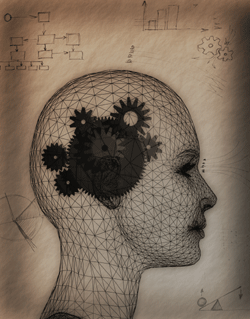We've all experienced that butterflies in the stomach feeling when we're nervous, but did you know the connection between gut and feelings is more real than imagined? Listen to your gut has the cache of folk wisdom, but science has shown we ought to take that advice literally.
The Brain-Gut Connection
There is an actual connection between your gut and your state of mind. Your gut is constantly in communication with your brain through the vagus nerve. Starting at the base of your brain, the vagus nerve travels down the neck and across the chest before branching through the gut. Generally, it is a one-way communication system with the gut constantly updating the brain. When everything is moving smoothly and the gut is sending happy messages to the brain, we remain blissfully unaware of their connection. But when things turn ugly in the gut, and stomach acid, gas, bloating or diarrhea starts to cause discomfort or pain, your gut starts sending mayday messages to your brain.
It is imperative older adults pay attention to their digestive health. As the body ages, we produce less saliva and stomach acid, which can make it more challenging to break down and absorb nutrients, according to Healthy Aging Partnership.
The Chicken or the Egg?
It is at this point scientists are still grappling with a which-came-first scenario.
- People who suffer from chronic gastro-intestinal problems are also likely to suffer from anxiety and depression.
- But it is also true people who suffer from chronic stress are likely to experience gastro-intestinal problems.
So Which Comes First?
- In older adults with chronic digestive problems, do the constant distress signals emanating from the gut eventually overwhelm the brain and trigger anxiety and depression?
- Or do chronic anxiety and depression trigger digestive distress?
The answer may be some of both. Communication between the brain and gut may be more of a two-way highway than one-way road. Solutions to chronic stress and chronic gastro-intestinal problems may need to address both the gut and the brain.
Check back next time as we discuss eight ways older adults can keep their stomach healthy and digestion running smoothly.














